Meet 2025 Next Work Environment Competition winner of the “Theoretical” category: Avila Spaces and their Re:Space submission. After winning our Hybrid category in 2024, they are now back-to-back winners!
Th mission of this winning submission is: Rethinking Work, Reusing the World: An innovative outdoor coworking concept that transforms recycled materials, solar energy, and rainwater systems into a new hybrid environment for the future of work.
Meet the Team
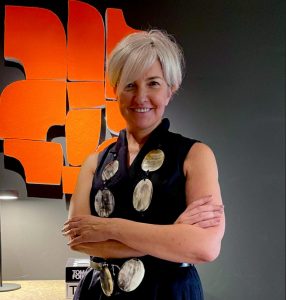
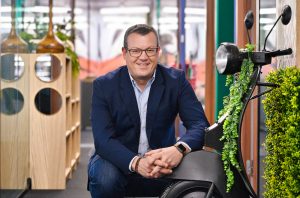
See The Full Submission Below
The Challenge
Avila Spaces runs a coworking space with limited social areas. In today’s hybrid world, companies increasingly prize social and collaborative spaces, so we’ll transform our unused 354 m²/3,810 ft² terrace into a sustainable, year‑round hub. The goal: make it comfortable, adaptable, and productive in every season using eco‑friendly materials, shading, planting, and energy‑efficient solutions. Guided by our motto—“Work, Relax, Enjoy”—we’ll design an innovative, mindful environment that fosters connection, wellness, and creativity while respecting the planet. The terrace will become our flagship space for collaboration, community, and recharge.
A New Concept of Flexible Space
Re:Space reconnects remote and in‑office workers through social, collaborative and focus settings. The terrace follows Activity‑Based Working (ABW): people choose the setting that best fits the task instead of a fixed desk. Smart lighting, natural ventilation, charging points and day‑light sensors make commuting worthwhile by restoring culture, productivity and belonging.
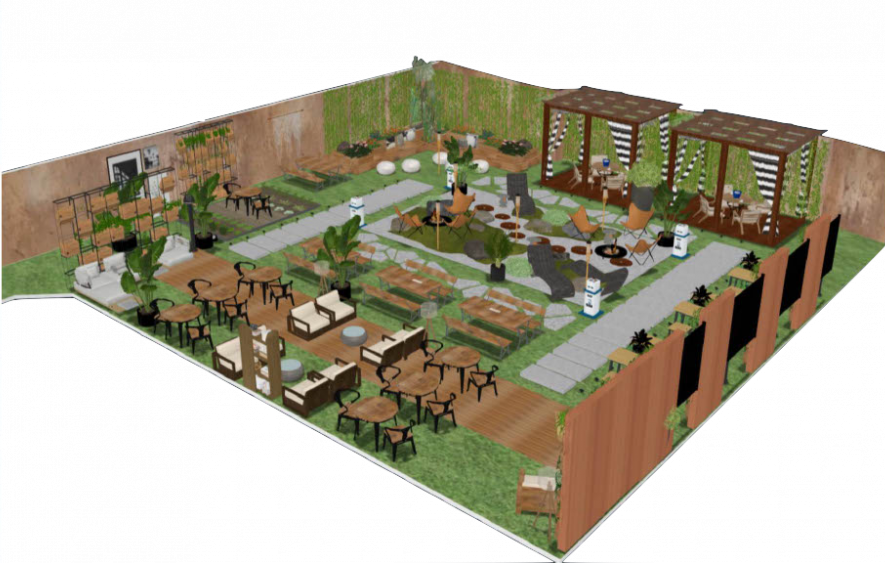
Sustainability First
ESG is core to Avila Spaces. The design uses surplus recycled wood; photovoltaics power LED lighting with motion/day‑light sensors, smart poles, charging points, power outlets and gentle heating. Passive comfort comes from misting lines and natural air ventilation. Captured rainwater supports irrigation and sanitary reuse. Lush planting purifies air and restores micro‑habitat. A vertical farm and shared vegetable garden (aromatic herbs, lettuces, tomatoes, carrots) bring biophilia to daily routines. Community involvement includes city‑council urban‑garden workshops with retired gardeners, a partnership with a social institution for people with disabilities, and collaboration with a Portuguese engineering university on wood structures.
Our Purpose: Employee Well‑Being
Employees spend more time on site, leading to higher energy levels and reduced sedentarism. Surrounded by plants and fresh air, teams experience measurable gains in focus and connection—supporting a global shift away from isolated home working.
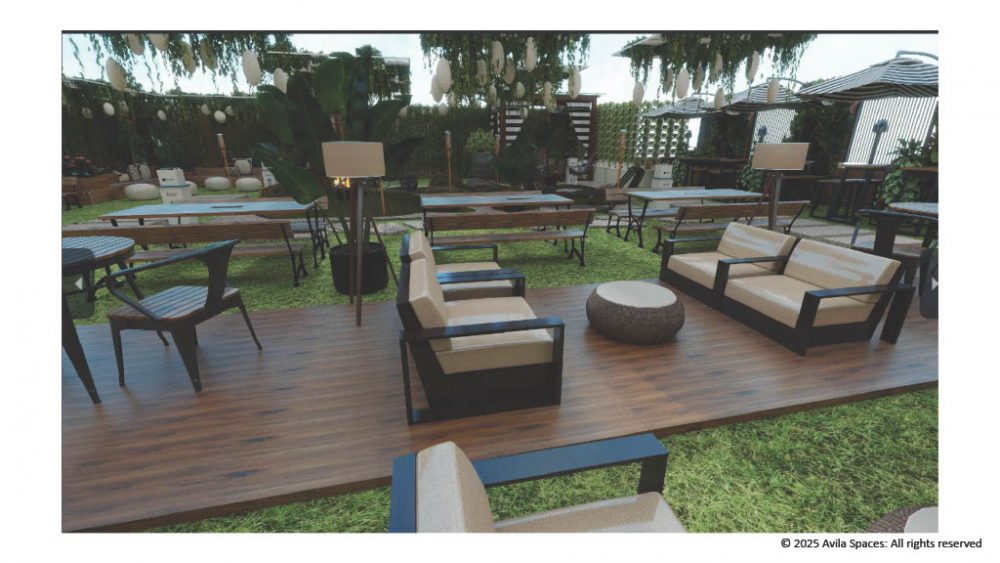
Architectural Integrity: Respecting Nature
We preserve the building’s character, reusing existing infrastructure and integrating recycled factory‑surplus wood. Lightweight roofing in organic fabric—sourced from local producers—provides shade and weather protection without altering the original architecture.
Cutting‑Edge Amenities
Smart poles, ubiquitous charging, and power/heating extend outdoor work sessions. Natural ventilation boosts air quality. The edible garden is open to all, encouraging breaks, micro‑movement and community.
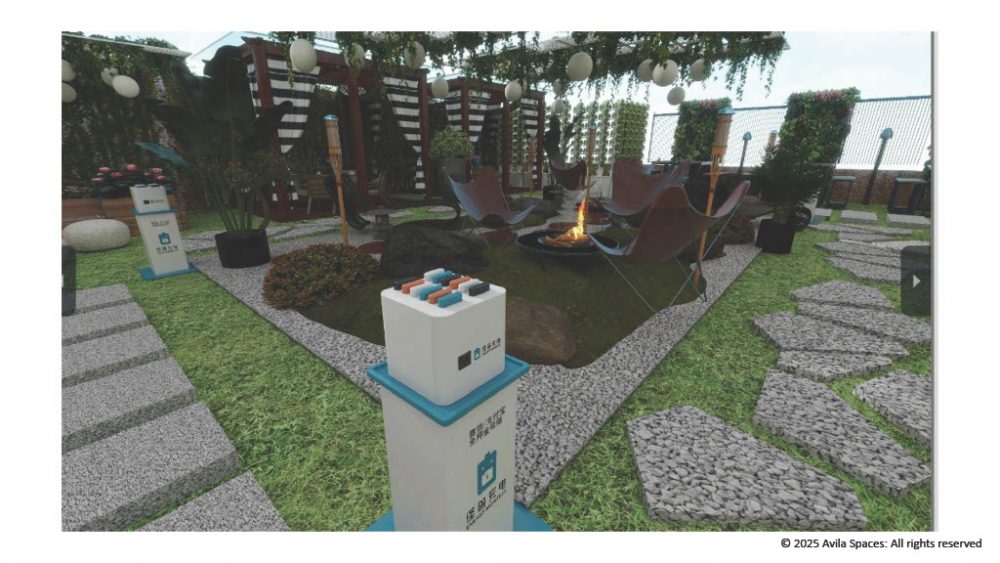
Functional Workspaces for a New Hybrid World
The terrace is a high‑performance ABW: ecosystem: choice‑rich zones for deep focus, co‑creation, socializing and restoration. Like all other areas at Avila, this project ensures accessibility for people with reduced mobility. Mobile furnishings, bookable nooks, and seamless power/data let people switch modes easily, strengthening bonds between remote and office populations while making the trip to the office feel worthwhile.
Quantitative Benefits (targets)
• Energy saving/year: 100% (surplus integrated into building system)
• Water saving/year: 83%
• Increase in hybrid‑work customers: 35%
• Increase in team productivity: 10%
• Increase in outdoor events: 20%
• Increase in yoga/meditation sessions: 100%
• Avila Spaces employee retention: +20%
• Clients’ employee retention: +10%
• Customer retention: +10%
• Mental‑health costs: −20%/year
• Absenteeism: −20%/year
Work Design wanted to know a little more so we asked the team, “Has the design evolved since you submitted it, and if so, how?”
Yes, we are still working on the project!
We are in talks to formalize a partnership with the mechanical engineering, environmental engineering, and thermodynamics departments of the Instituto Superior Técnico, based in Lisbon, one of the most prestigious engineering universities in Europe. At the university’s suggestion, we are studying the integration of a mechanism that generates energy through people’s footsteps. This means that all customers will contribute to clean energy generation.
Regarding the design and production of wooden structures and furniture, we have already established a partnership with the Portuguese company Mofreita. This company is based in the interior north of Portugal, and strongly focused on sustainability and environmental responsibility, having developed two key programs:
1) Project “Revive”
This initiative promotes the reuse of wood, respecting the natural life cycle of each piece. It originated when it was realized that tree felling and frequent tree falls in the region created a raw material with great transformative potential. Even though commercialized, this wood carries a unique history that deserves to be preserved and respected. Each Revive piece tells a story of sustainability, quality, and design, resulting in products that embrace the timeless essence of wood.
2) Excedentes Criativos (“Creative Surpluses”)
This project was born from the desire to give new life to surplus wood from the factory’s production process. Each piece is designed with creativity and environmental respect, combining functional design with positive impact. The project also integrates people with special needs into the production process, with profits directly supporting these institutions, creating significant social impact. In addition, the pieces are developed in collaboration with the academic community—including university and polytechnic students—fostering innovation while uniting creativity, education, and sustainability.
Following the university’s suggestion, we also began discussions with Pavegen, a UK-based company that has developed intelligent floor tiles generating energy with every step. A single footstep produces only a few joules—enough to power LED lighting, sensors, or small devices.
In summary, the partnerships Avila Spaces is establishing aim to achieve the following objectives:
- Environmental sustainability: Reduce wood waste by reusing raw materials from trees removed from their natural habitat and by reclaiming wood from vacant or demolished buildings; generate energy from users’ footsteps.
- Social inclusion: Create job opportunities for people with disabilities, promoting autonomy and inclusion.
- Responsible design: Develop eco-friendly pieces that respect the environment and the natural life cycle of materials.
- Education: Raise awareness among the academic community and design professionals about responsible, sustainable design, while encouraging active participation in the project, from the conception to the projection of the pieces.


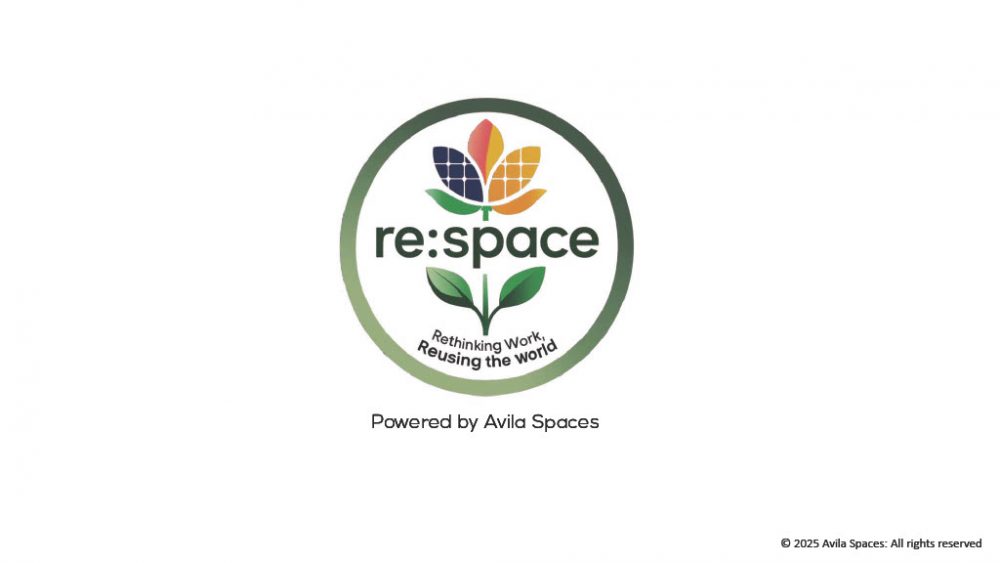
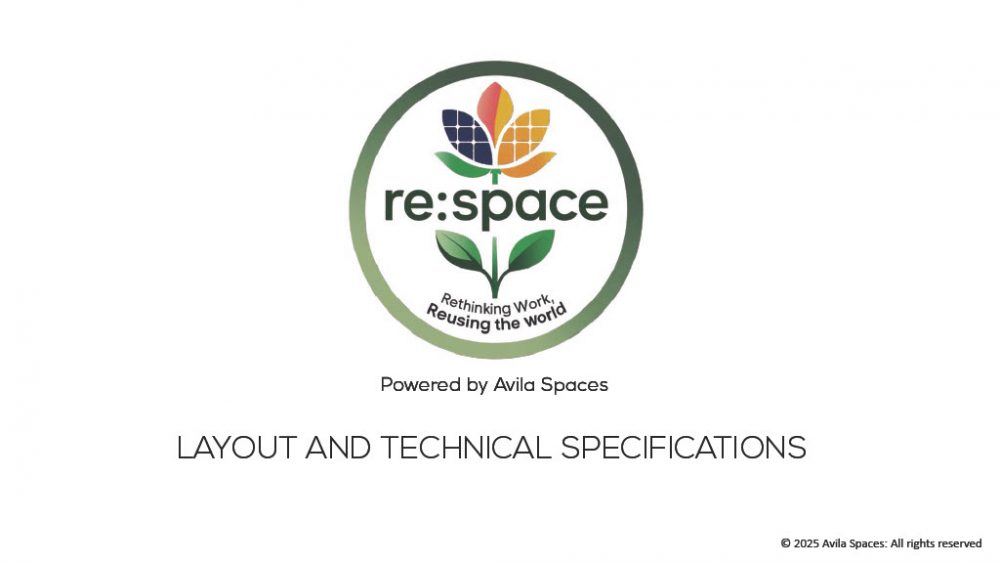
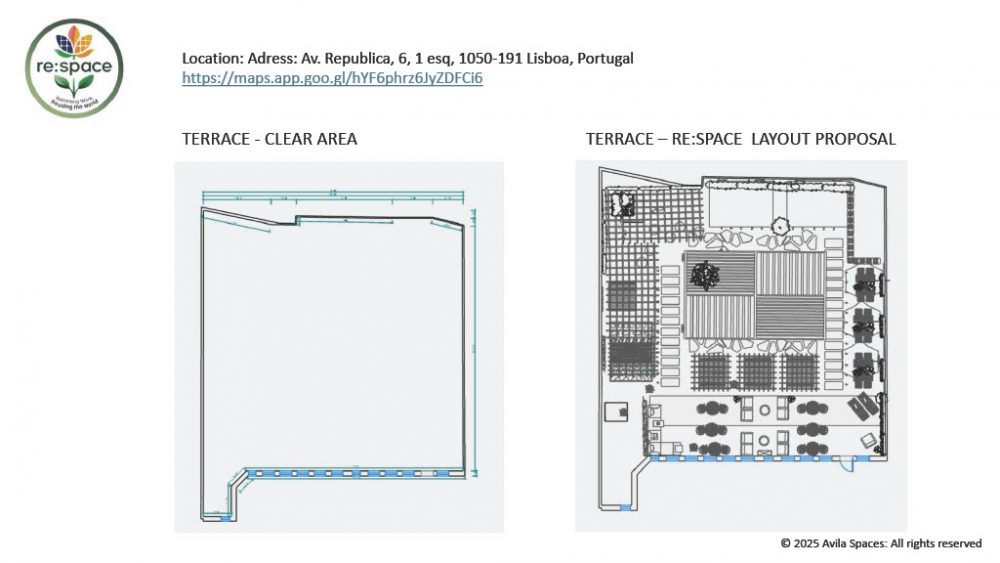
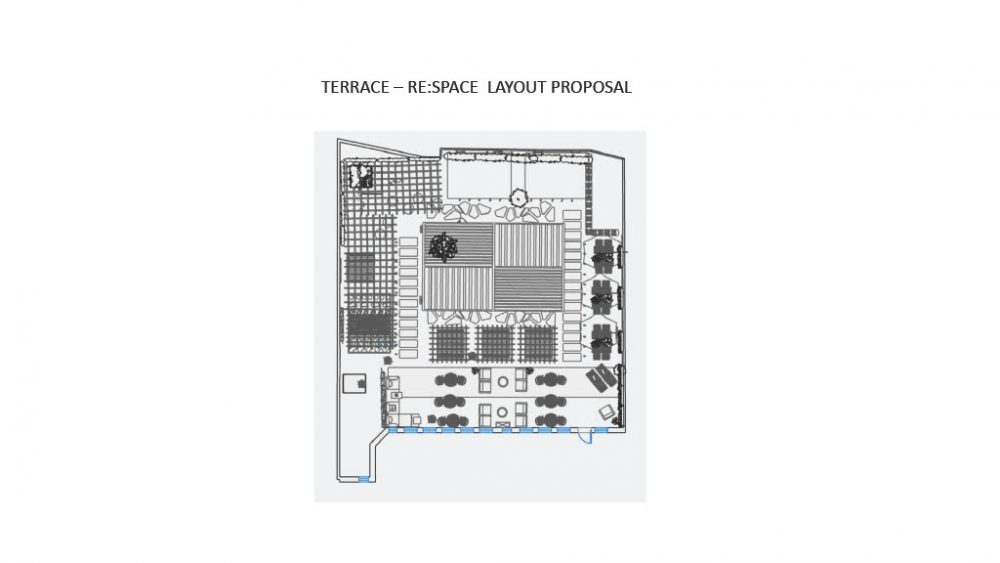
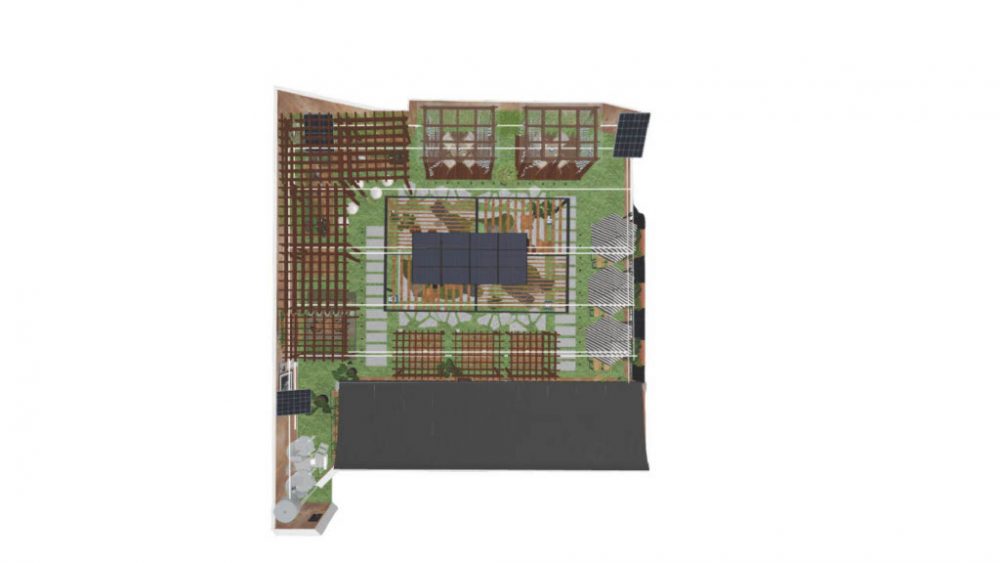
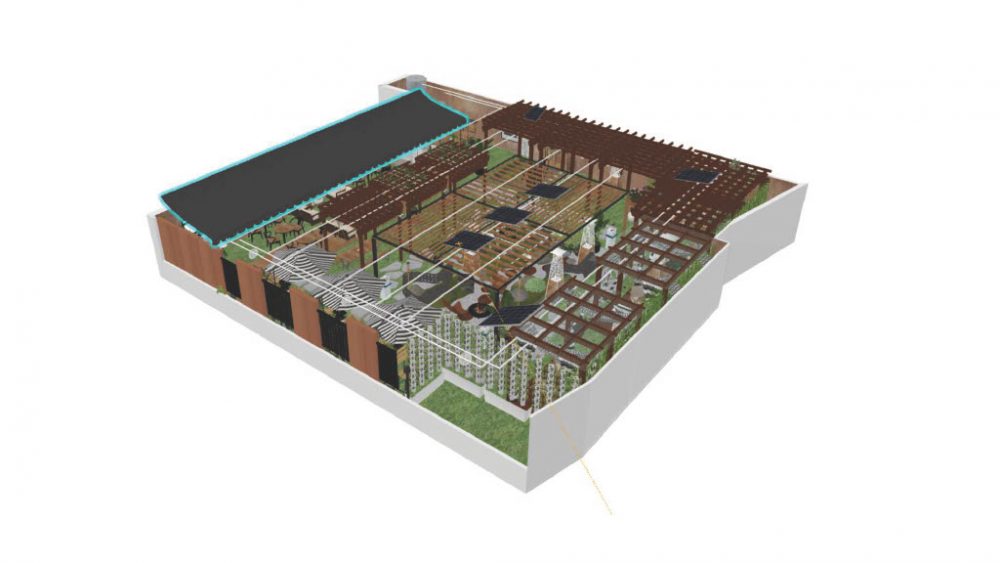
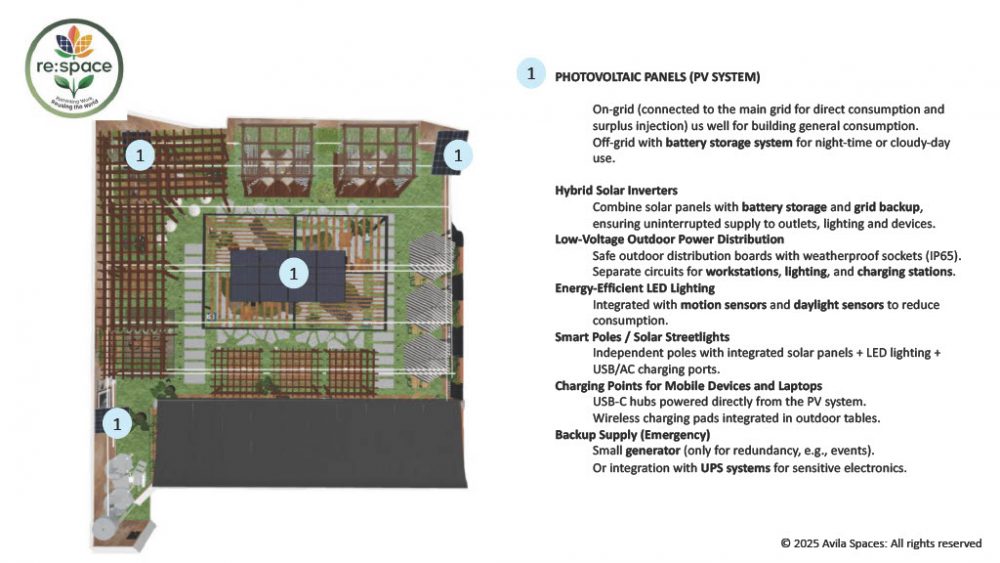
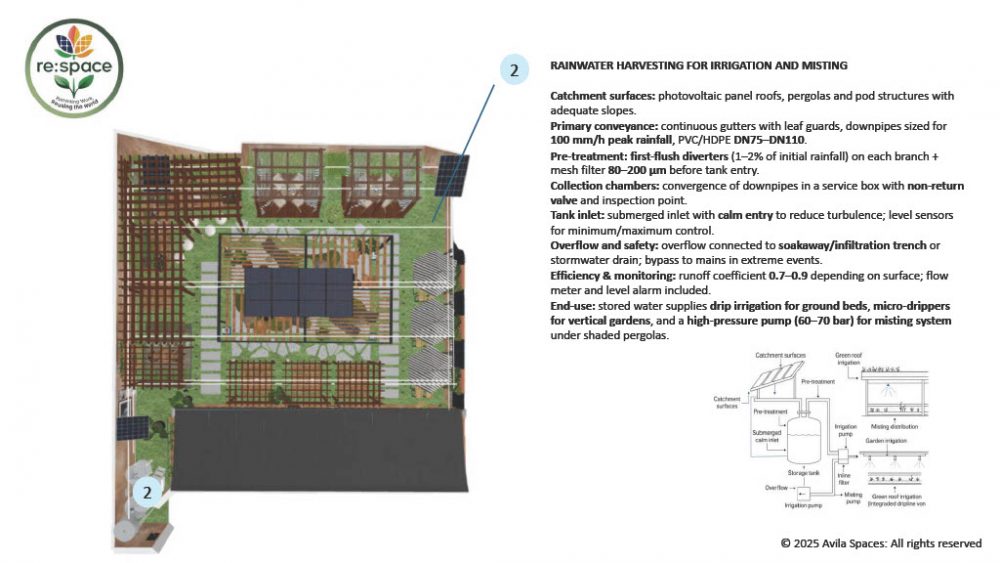
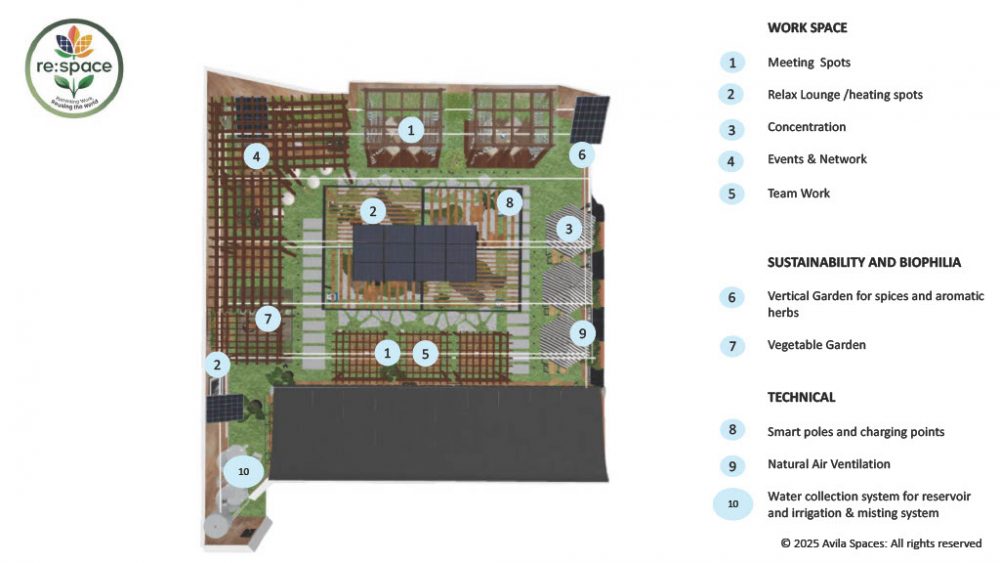
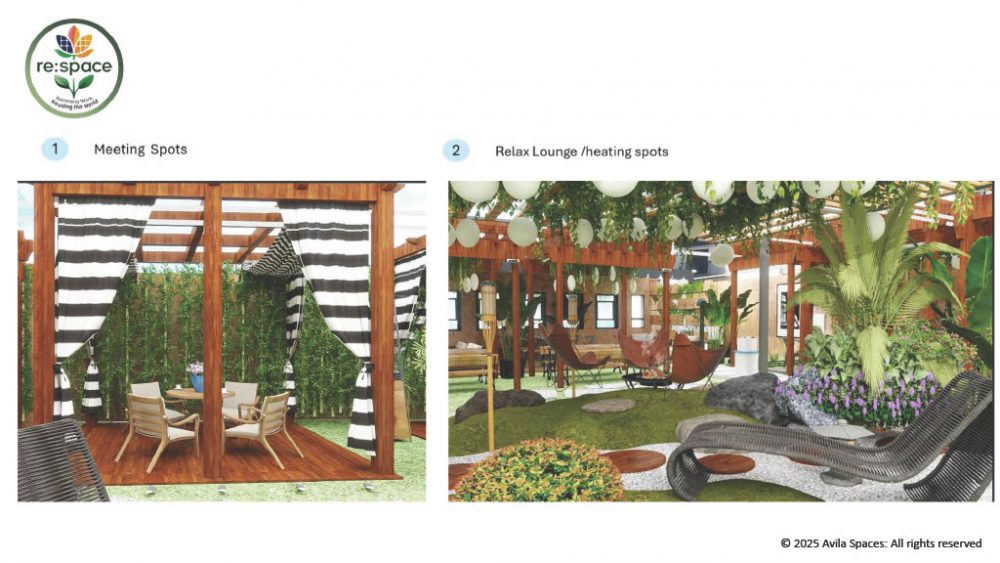
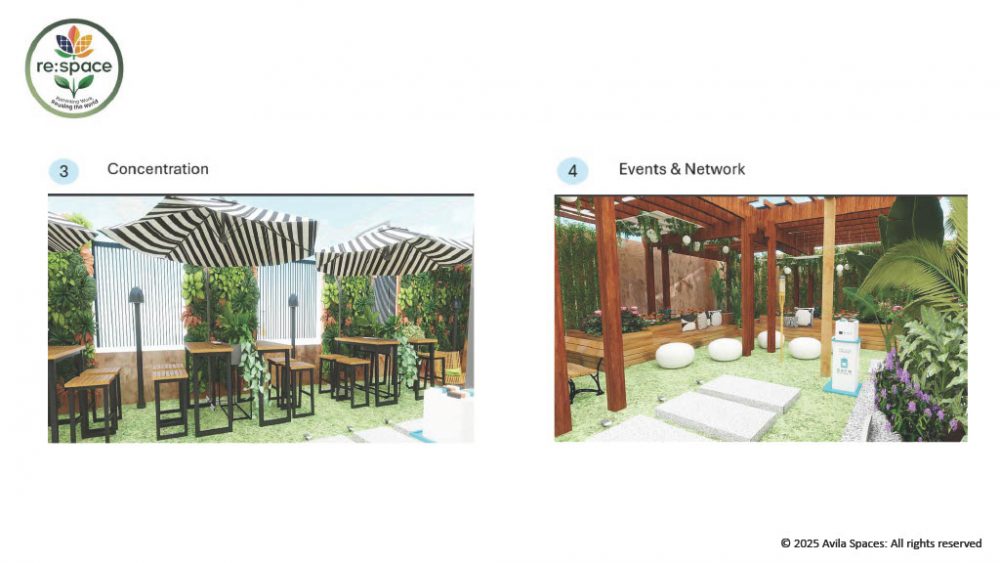
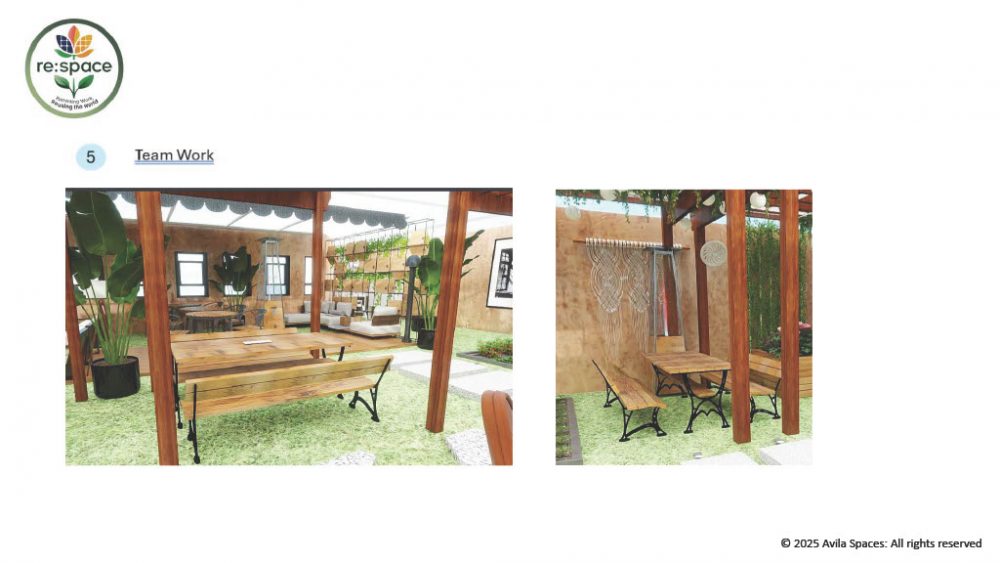
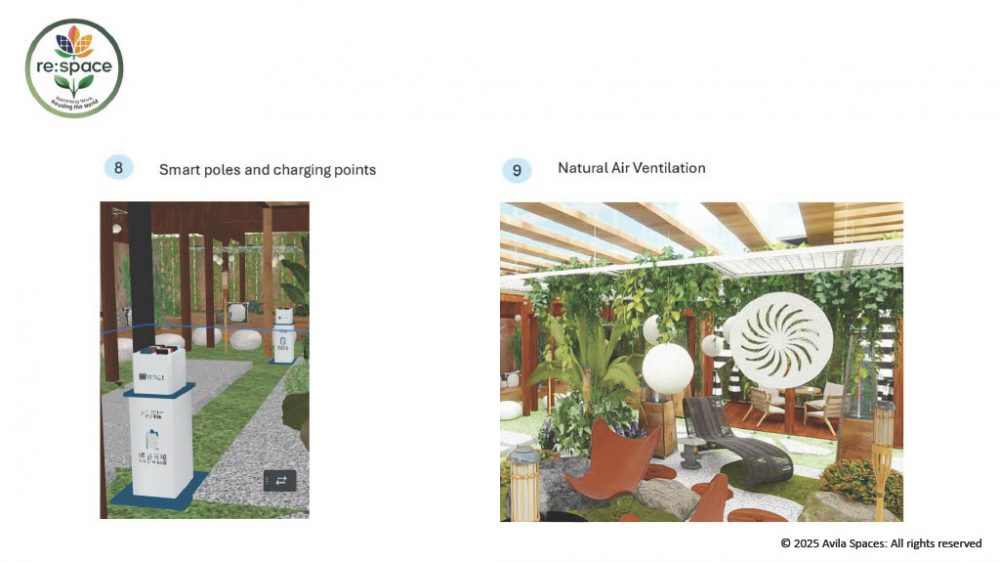
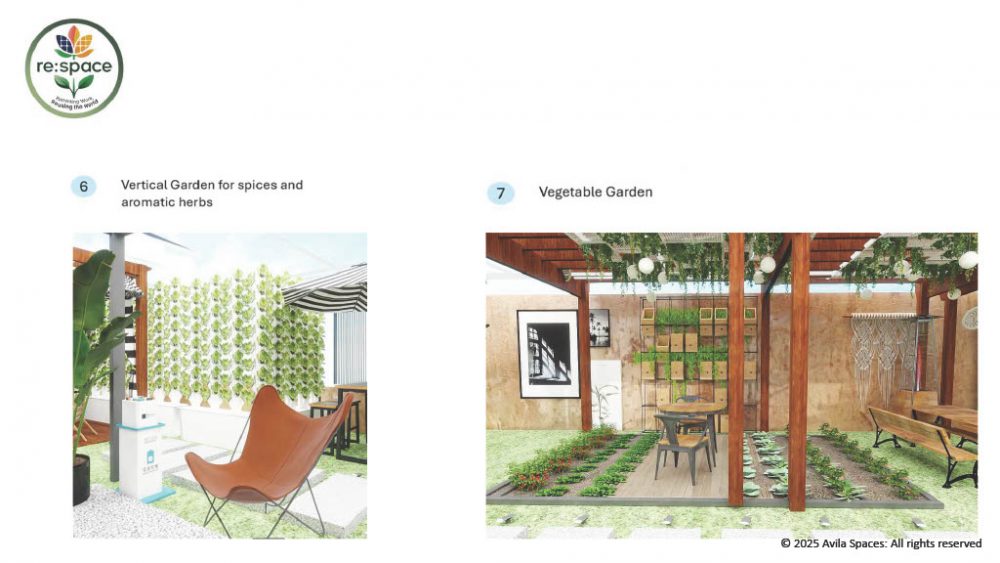
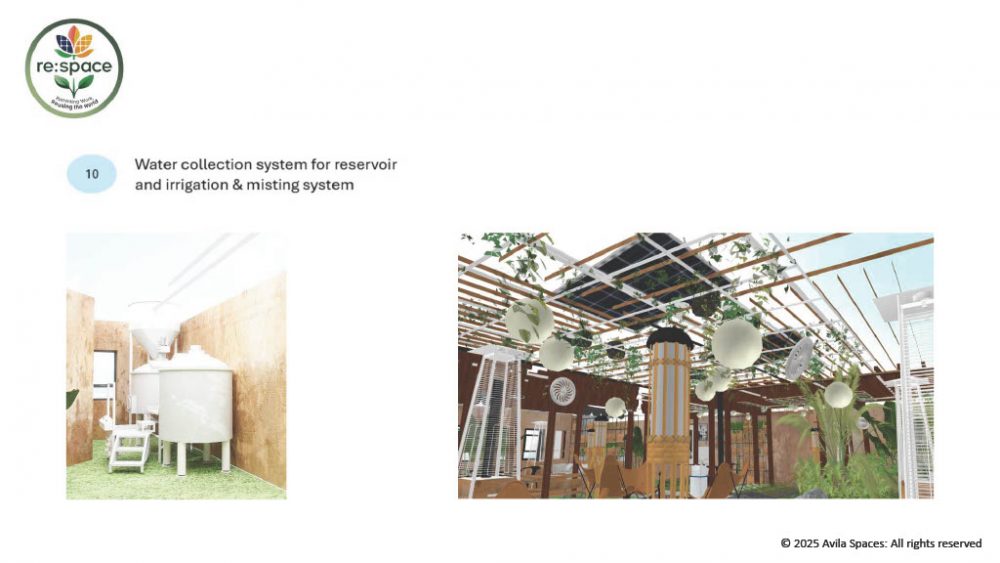

 .
. 



